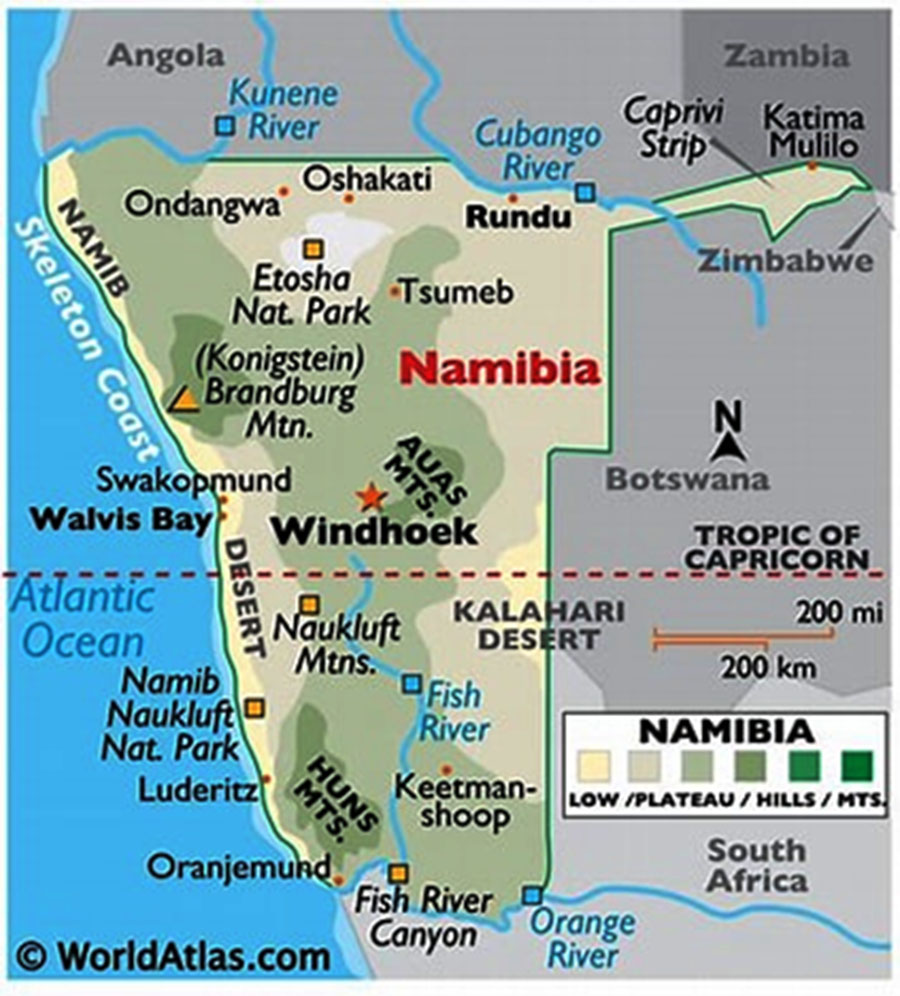Namibia could be on the threshold of becoming the world’s next eye-catching oil discovery ‘hot spot’ as the country continues to ‘turn in’ several major discoveries and to promise more, a circumstance that has caused the Southern Africa territory to be dubbed the ‘new Guyana,” according to an August 23 article written by Energy Writer Felicity Bradstock (Namibia’s Oil And Gas Sector Sparks Global Investment Rush) and published by oilprice.com a leading global energy news site. The surfeit of recent oil finds in the country’s territorial waters suggests that there could be more oil yet to come, the indications reportedly having attracted an influx of foreign investment and raising hopes in the Southern Africa territory that it could eventually become one of Africa’s ‘big players’ in the energy sector.

With several new finds having been realized in recent months, the Namibian government is reportedly welcoming external financing in the sector while as pursuing partial ownership of operations, to ensure the country has greater input in the exploitation of its resources, following the lessons learned of many other African nations, the article says. Several of the ‘big names’ in the international energy sector including TotalEnergies, Galp, Shell, QatarEnergy, Chevron, and ExxonMobil, have reportedly ‘checked in’ on Namibia’s now hectic oil and gas exploration pursuits “as they search for low-carbon crude potential that could boost their longevity during a global green transition,” Bradstock writes. Energy experts had projected a “rapid transformation in Namibia’s oil and gas sector” following the country’s discoveries in 2022 and 2024 which had provided clear indications that there could be much more crude left to find.
Bradstock reports that back in March this year Namibia “made its third notable find in the Orange Basin, in a project operated by Shell and QatarEnergy,” a discovery that led to more exploration activities in the region.
The Orange Basin find also reportedly attracted other major players to the region. Unsurprisingly, the government in Namibia has already begun to make a reportedly robust case for “local ownership”, its position being, according to Bradstock, that such ownership “must start with the state, which holds ownership of our natural resources.” That said, the government of Namibia has “used its recent successes to attract more players to its oil and gas sector, encouraging foreign companies to compete for the country’s oil and gas resources,” Bradstock writes.
“There is significant potential for the development of the midstream and downstream markets in the southern African country, which could see Namibia become a major producer, refiner, and exporter of oil and gas if it can achieve the necessary investment,” she goes on. The recent profusion of oil finds in Namibian territory have, for several months, given rise to articles in various energy newspapers and journals describing the country as Africa’s next major energy hotspot. In August, it had been reported that Shell and TotalEnergies had, during the previous eighteen months, discovered at least 11 billion barrels of light oil and up to 8.7 trillion cubic feet of gas in Namibia’s prolific Orange basin.






